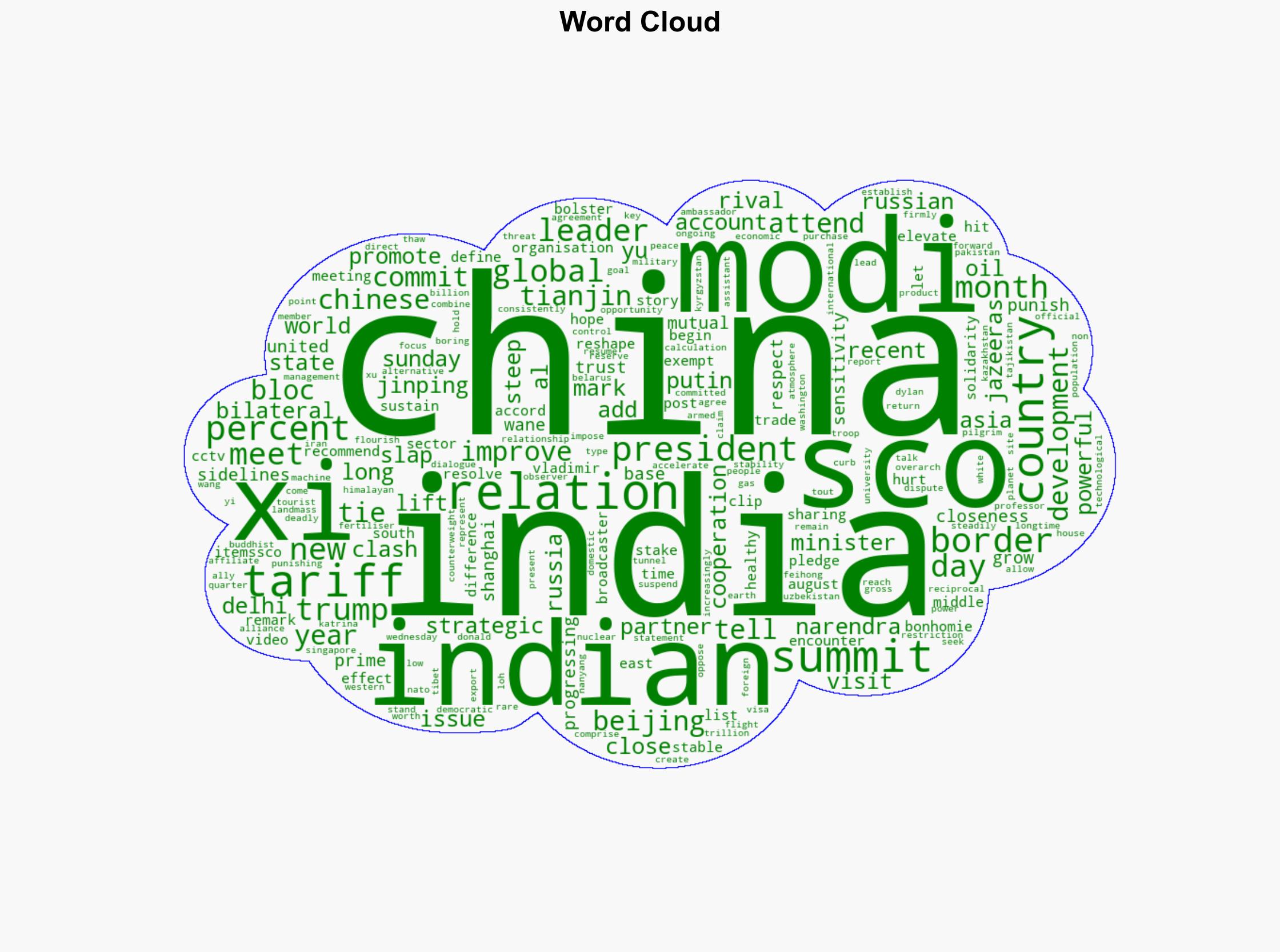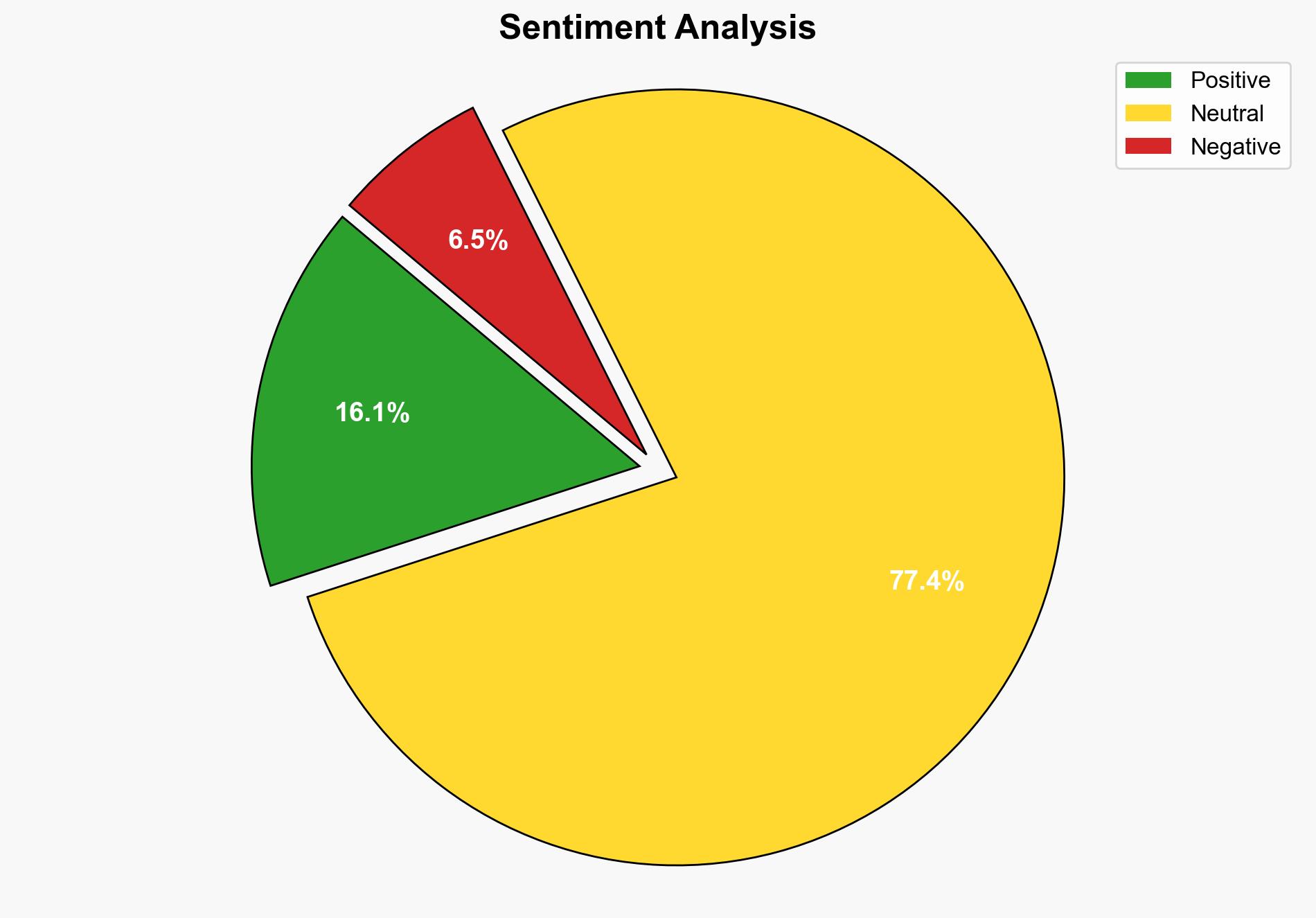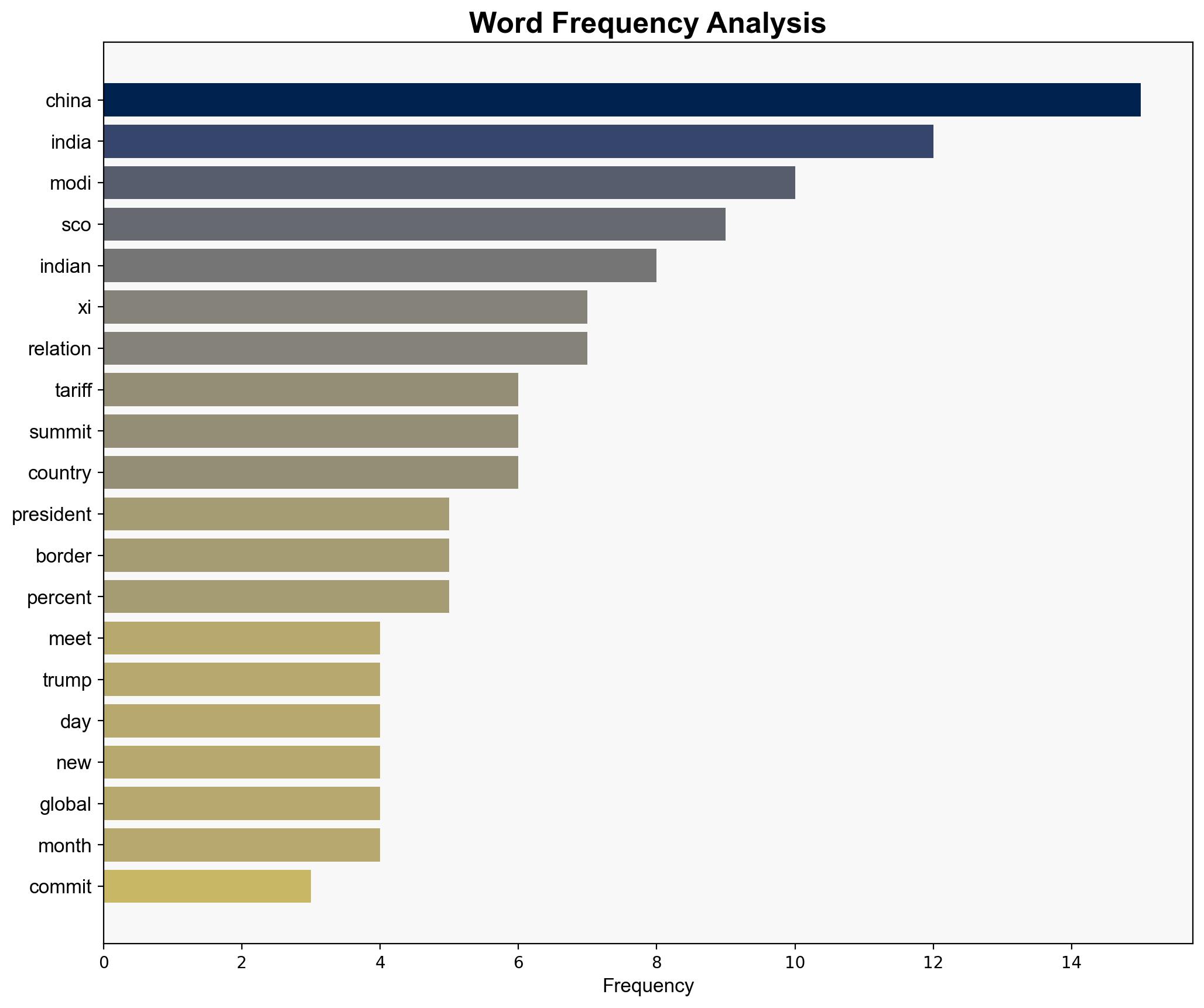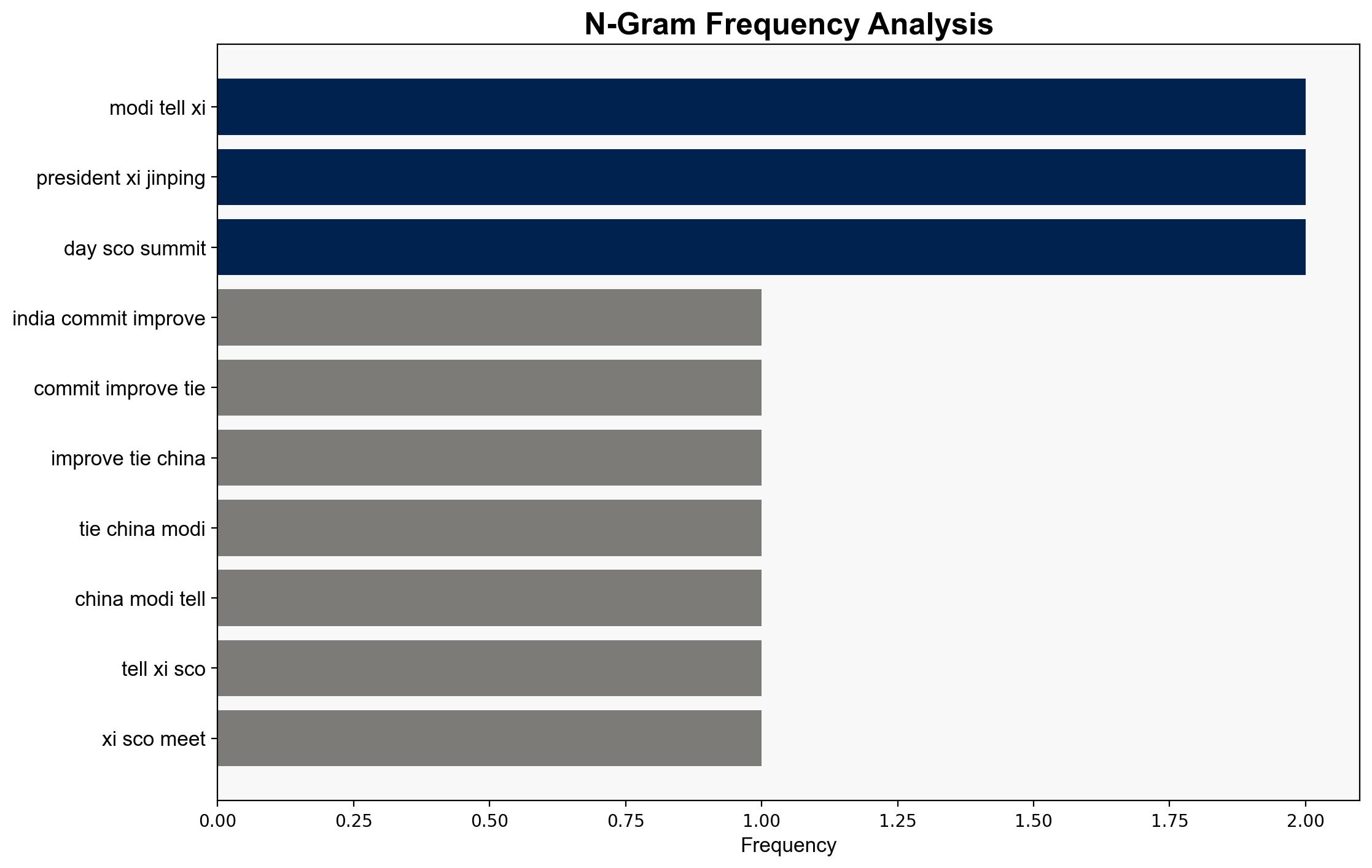India committed to improving ties with China Modi tells Xi before SCO meet – Al Jazeera English
Published on: 2025-08-31
Intelligence Report: India committed to improving ties with China Modi tells Xi before SCO meet – Al Jazeera English
1. BLUF (Bottom Line Up Front)
India’s commitment to improving ties with China, as stated by Narendra Modi to Xi Jinping, is likely a strategic maneuver to counterbalance recent U.S. tariffs and strengthen regional alliances. The most supported hypothesis is that India seeks to leverage its relationship with China to mitigate economic pressures from the U.S. tariffs. Confidence level: Moderate. Recommended action: Monitor developments in India-China relations and assess impacts on regional stability and economic policies.
2. Competing Hypotheses
1. **Hypothesis A**: India is genuinely committed to improving ties with China to foster economic growth and regional stability, independent of U.S. actions.
2. **Hypothesis B**: India’s overtures to China are primarily a strategic response to U.S. tariffs, aiming to strengthen its geopolitical position and economic resilience.
Using ACH 2.0, Hypothesis B is better supported due to the timing of Modi’s statement following the U.S. tariffs and India’s ongoing need to diversify its economic partnerships. The SCO summit provides a platform for India to align more closely with China and other regional powers.
3. Key Assumptions and Red Flags
– Assumptions: India and China can compartmentalize border disputes to focus on economic cooperation; U.S. tariffs will have a significant impact on India’s economy.
– Red Flags: Historical tensions between India and China could undermine long-term cooperation; potential overestimation of China’s willingness to prioritize economic ties over strategic rivalry.
– Missing Data: Detailed economic impact assessments of U.S. tariffs on India; internal Chinese perspectives on India-China relations.
4. Implications and Strategic Risks
– Economic: Strengthened India-China ties could shift regional trade dynamics, potentially isolating the U.S. in certain markets.
– Geopolitical: Enhanced cooperation may alter power balances within Asia, affecting alliances and regional security frameworks.
– Strategic Risks: Failure to resolve border issues could lead to renewed tensions, undermining economic agreements and regional stability.
5. Recommendations and Outlook
- Monitor India-China diplomatic engagements and economic agreements for signs of deepening cooperation.
- Assess the impact of U.S. tariffs on India’s economic policies and regional alliances.
- Scenario Projections:
- Best: India and China establish robust economic ties, enhancing regional stability.
- Worst: Border disputes reignite, leading to military confrontations and economic fallout.
- Most Likely: Incremental progress in economic cooperation, with periodic setbacks due to unresolved strategic issues.
6. Key Individuals and Entities
– Narendra Modi
– Xi Jinping
– Donald Trump
– Vladimir Putin
7. Thematic Tags
national security threats, regional focus, economic diplomacy, geopolitical strategy





